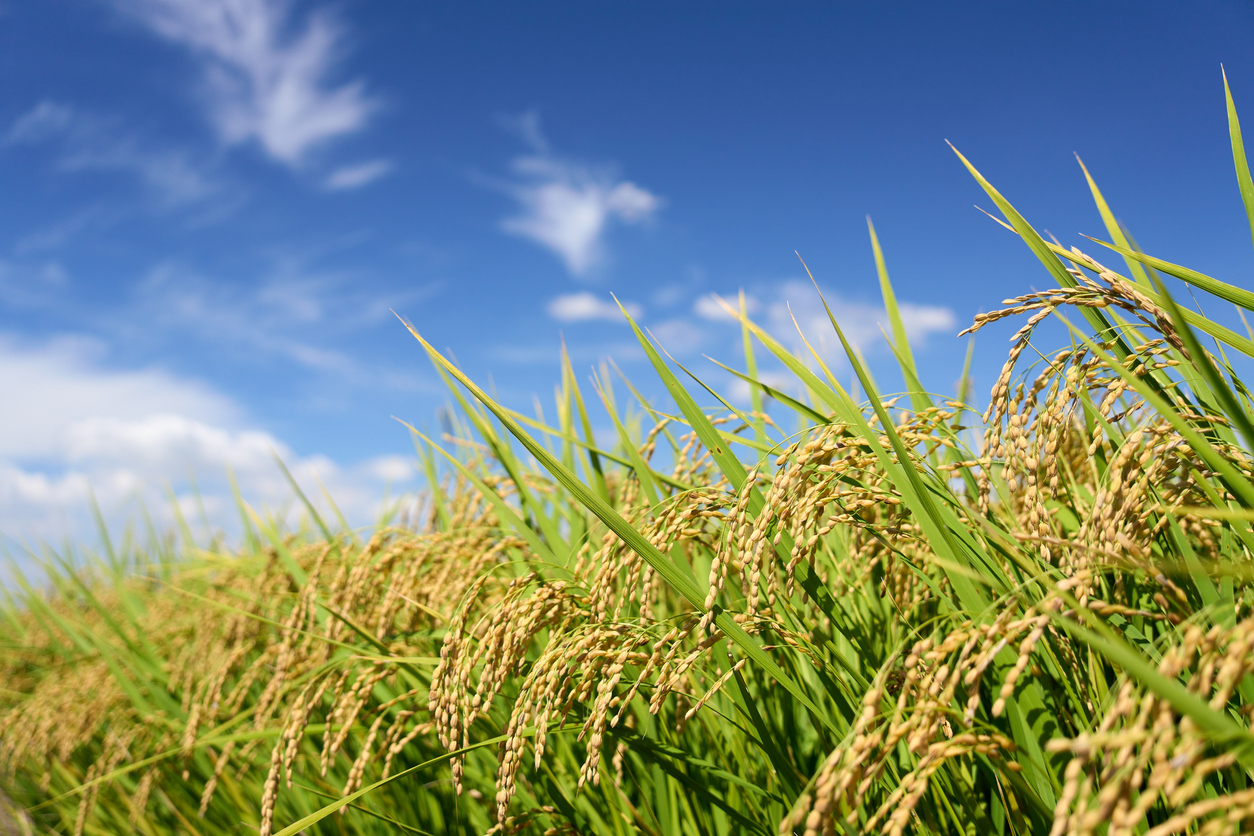
IRRI Scientists Identify Rice Gene Variant that Boosts Yield Under Drought
August 20, 2025| |
In a major breakthrough for food security, scientists at the International Rice Research Institute (IRRI) and their partners in India have identified gene variants that significantly increase rice yields during drought. These genes boost the plant's tolerance to water stress during the reproductive stage, a critical period when drought can cause devastating yield losses.
In the study published in the Journal of Experimental Botany, the results highlight the discovery of a variant of the gene OsIRO2 that showed strong potential when introduced into the widely grown variety DRR Dhan 44. The team tested over 450 rice lines to identify gene variants that improve drought tolerance. They developed new rice lines carrying unique gene variants, known as superior haplotypes. These were tested against both the original parent (DRR Dhan 44) and the donor parent (ADT 12) in multiple field trials. In total, 450 rice lines were evaluated across various locations and growing seasons. Researchers found 67 genetic links to traits important for drought tolerance and identified 10 key genes to prioritize in breeding programs.
“Through this finding, researchers can now develop better rice varieties more precisely that withstand water scarcity while maintaining high yields. For farmers, this means better harvests and improved resilience, especially as climate change intensifies,” said Dr. Pallavi Sinha, scientist at IRRI.
“By using advanced genetic tools and working closely with our partners in India, we've been able to identify the exact parts of the genome that help rice survive drought,” said Dr. Vikas Singh, IRRI Regional Breeding Lead for South Asia. “This gives breeders a clear and practical target to develop improved varieties that protect farmers' harvests.”
For more details, read the article in IRRI News and Events.
| |
You might also like:
- Gene-edited Rice Provides Insights into Abiotic Stress Resistance
- Research Pinpoints Key Gene in Enhancing Drought Tolerance in Rice
- Experts Pinpoint Rice Proteins Vital in Drought Stress Tolerance and Yield
Biotech Updates is a weekly newsletter of ISAAA, a not-for-profit organization. It is distributed for free to over 22,000 subscribers worldwide to inform them about the key developments in biosciences, especially in biotechnology. Your support will help us in our mission to feed the world with knowledge. You can help by donating as little as $10.
-
See more articles:
-
Plant
- AI-Powered Robots to Transform Crop Breeding
- Scientists Use AI to Boost Precision of Gene Editing
- EFSA GMO Panel Releases Scientific Assessment of GM Maize T25
- Engineered Yeast Produces More Succinic Acid
- IRRI Scientists Identify Rice Gene Variant that Boosts Yield Under Drought
-
Food
- 8th Asian Short Course on Agribiotechnology, Biosafety Regulation, and Communication (ASCA8)
- Pairwise Licenses Fulcrum® CRISPR Platform to Mars for Cacao R&D
-
Environment
- ISAAA, Bayer, and SciCommPH Empower Media Practitioners to Make Informed Biotech Reporting
-
Read the latest: - Biotech Updates (January 14, 2026)
- Gene Editing Supplement (December 17, 2025)
- Gene Drive Supplement (February 22, 2023)
-
Subscribe to BU: - Share
- Tweet

